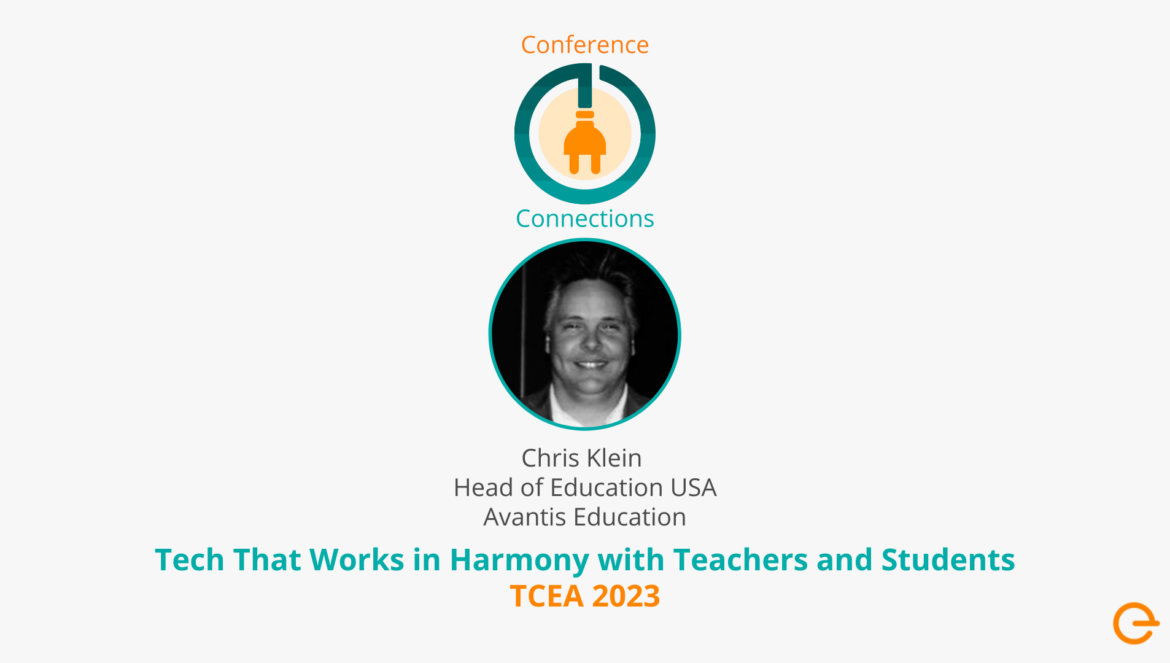Table of Contents
The Covid-19 pandemic was a significant moment in education. When schools suddenly had to find alternatives to provide their students with effective learning and instruction, they scrambled to find unique solutions to this once-in-a-lifetime challenge. Although solutions were found, there were flaws in many of the strategies that were put in place. Student engagement dropped, oversight was challenged, and learning progress was stifled.
What if there was another way to engage students, increase their investment in learning, and gamify their approach to education? Although it may have come under scrutiny, the metaverse may be an opportunity for connection, learning, and a path forward for remote learning.
Connecting Students to the Metaverse
In this episode of Conference Connections, an interview series with K20 thought leaders, we chat with Chris Klein, Head of Education USA for Avantis Education. The edCircuit team caught up with Chris at TCEA 2023. The topic of this discussion was metaverse accessibility for teachers and students.
“[On Zoom] we were already in virtual reality. We said, what if we were able to take that concept of a virtual shared space ad make it with avatars in an online environment…what if we made [the metaverse] solely about education? ”
Meeting the Need For Engaging and Community-Focused Virtual Learning
At the beginning of this conversation, Chris explores the inspiration behind Avantis’ product and how education and global trends are pushing towards a metaverse for education. From a global trend perspective, students are already beginning to interact, play, and communicate in the metaverse. With games like Roblox, students are beginning to familiarize themselves with the metaverse and how to interact and behave in a virtual reality environment.
From an education standpoint, there is an increase in the need to have engaging virtual learning is a major push towards the metaverse, which can provide students with engaging technology and the capabilities to upload educational content. The metaverse also gives students a more accessible ability to interact with one another, whereas other alternatives, like video conferencing, are limited.
As Chris points out, the metaverse is a much more interesting option than some of the other solutions to virtual learning, which can either be unappealing to students or simply isolating.
A Teacher-Focused Model
In the second half of the conversation, Chris discusses how their unique model is built around supporting teachers and their curriculum. Rather than building a curriculum for teachers around the tool, the team at Avantis’ model supports teachers to use the metaverse to supplement their curriculum. The tool provides a library of content that teachers can incorporate into their lesson plans. Interactive videos, 3D models, projects, and more can be directly uploaded to the content library as well, making the eduverse more personalized to each individual classroom.
This model has garnered particular respect from teachers who have shared frustration due to the increase of built-in curriculum from edtech tools. Using their model, Avantis can support learning by providing an environment for teachers to teach without telling them how or what to instruct their students.
Accessible, Virtual, and Safe Learning
The conversation closes with a discussion on the modalities of learning that students can access through metaverse learning, accessibility, and parental concerns. Avantis has invested in making their eduverse a safe space free of the typical concerns parents have about the metaverse. By focusing on K12 education, they have created a tool that is friendly for students and can be used to educate safely.
Overall, this conversation highlights the possibility of the metaverse for education and how we can evolve remote and distance learning to be safe, interactive, and academically rigorous.
To learn more about Avantis Education, visit their website and follow them on Twitter, Facebook, and LinkedIn.
For more episodes on Conference Connections, visit edCircuit.
Learn more about the participants below.


